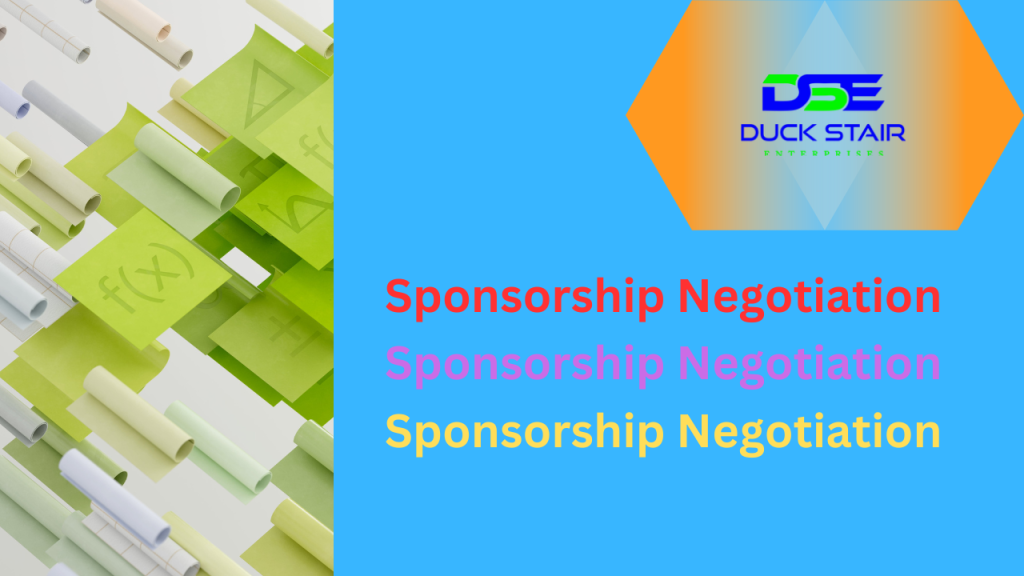
Sponsorship Negotiations
Certainly! Sponsorship negotiations involve discussions between a sponsor and a potential partner to establish a mutually beneficial relationship. Whether you’re representing a business seeking sponsorship or an individual seeking support, here are some key steps and considerations for successful sponsorship negotiations:
Define Your Objectives:
Clearly outline your goals and what you hope to achieve through the sponsorship. Identify specific outcomes, such as brand exposure, increased sales, or support for a particular event or project.
Know Your Value Proposition:
Clearly articulate what you bring to the table. Highlight the benefits and value the sponsor will gain from the partnership. Showcase your audience demographics, engagement metrics, and any unique opportunities for the sponsor.
Research Potential Sponsors:
Identify potential sponsors that align with your brand or objectives.
Research their values, previous sponsorships, and any specific initiatives they may be interested in supporting.
Create a Comprehensive Proposal:
Develop a detailed sponsorship proposal that outlines your objectives, target audience, and the benefits for the sponsor.
Include sponsorship packages with different levels of investment, clearly defining what each level offers.
Understand Sponsor’s Goals:
During negotiations, understand the sponsor’s goals and how they align with your own. Be prepared to tailor your proposal to meet the specific needs and objectives of the sponsor.
Negotiate Terms and Deliverables:
Discuss the financial terms of the sponsorship, including the amount of investment and payment schedule. Clearly outline the deliverables and obligations for both parties, such as logo placement, mentions, and promotional activities.
Be Flexible:
Be open to negotiation and flexible in finding a mutually beneficial arrangement. Consider non-monetary benefits, such as in-kind contributions or collaborative marketing efforts.
Legal Considerations:
Work with legal professionals to draft a clear and comprehensive sponsorship agreement.
Guarantee that all agreements, including freedoms and commitments, are plainly characterised and settled upon by the two players.
Measurement and Evaluation:
Define key performance indicators (KPIs) to measure the success of the sponsorship. Establish a plan for regular reporting and evaluation to ensure both parties are meeting their objectives.
Construct Long haul Connections:
View sponsorship as a drawn out relationship instead of a one-time exchange. Keep communication open and transparent to foster a positive and lasting partnership.
Remember, successful sponsorship negotiations require preparation, clear communication, and a focus on creating value for both parties involved.
